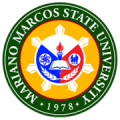MMSU CAFSD rolls out waste and pollution management program
By Daniel Tapaoan, Jr., StratCom Correspondent
As part of its goal to be a model of environmental sustainability, the MMSU College of Agriculture, Food, and Sustainable Development (CAFSD) launched its Waste and Pollution Management (WPM) program today, October 15, at the CAFSD lobby.
MMSU OIC President Prima Fe Franco, Vice President for Planning and Strategic Foresight Virgilio Julius Manzano, Jr., and CAFSD OIC Dean Charlie Batin led the launch of the WPM program. It aims to strengthen a culture of responsible waste management and sustainability practices among students and faculty while instilling core environmental values throughout the college.
Dr. Franco described the initiative as a first of its kind in MMSU, expressing hope that other academic units would start similar initiatives. She also urged the college to leverage the expertise of its various departments to ensure the program's success.
Furthermore, Dr. Franco announced that a memorandum would be issued to all MMSU offices, urging them to adopt proper waste segregation and disposal practices as part of the university's wider sustainability drive.
Meanwhile, Dr. Manzano congratulated the college for the program's successful launch, saying that it aligns with MMSU’s goal of establishing a vibrant and engaging university campus. Dr. Arlene Gonzales, sustainability and futures thinking chief, and Arch. Aida Cabang, general services director, also expressed support for the CAFSD’s initiative.
Dr. Batin underscored the significance of the WPM program in transforming CAFSD into a safe and eco-friendly space for faculty and students. He also emphasized that these efforts contribute to MMSU’s broader objective of enhancing its global standing in the Times Higher Education (THE) Impact Rankings and the UI Green Metric Rankings.
CAFSD-WPM Focal Person Ronnel Pagurayan outlined the program's key components, including waste reduction, reuse, recycling, resource conservation, and the promotion of sustainable practices through awareness campaigns and advocacy support.
To ensure the program’s effectiveness, the college strictly implements guidelines on maintaining the cleanliness and orderliness of its classrooms and study areas. Sanctions will be imposed for violators, and rewards will be given to the most compliant student organizations.
CAFSD has implemented several waste and pollution management initiatives over the past years. One of these is the establishment of its Materials Recovery Facility, which serves as a temporary storage facility for residual and recyclable wastes. Additionally, the college operates a composting facility, where biodegradable waste is processed into organic fertilizers for use in propagation projects. The college has also banned plastic bottled water in its auxiliary building, encouraging students and staff to bring reusable tumblers instead.
Gallery
Dear Valued Client,
We will be introducing our newly upgraded website on October 31, 2024 – offering faster access, improved navigation, and enriched content for students, faculty, partners, and stakeholders. Experience how we cultivate minds and transform futures at MMSU.

 CAFSD
CAFSD CASAT
CASAT CAS
CAS CBEA
CBEA CCIS
CCIS COE
COE CHS
CHS CIT
CIT CTE
CTE COM
COM CVM
CVM Graduate School
Graduate School




